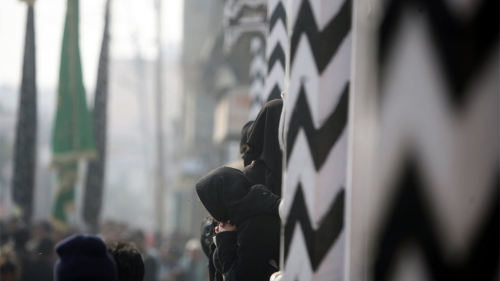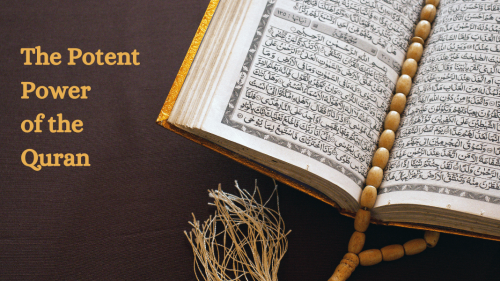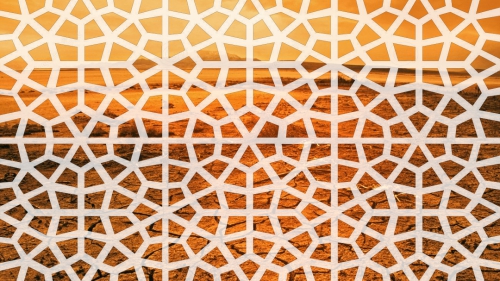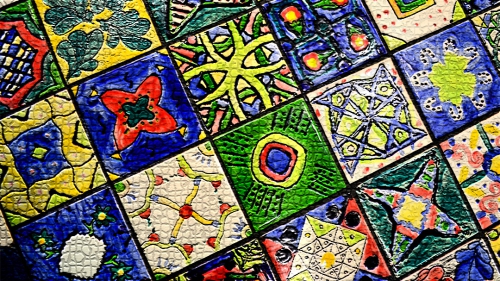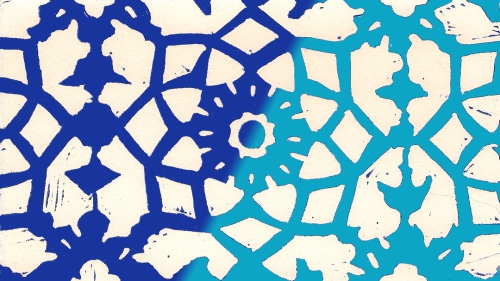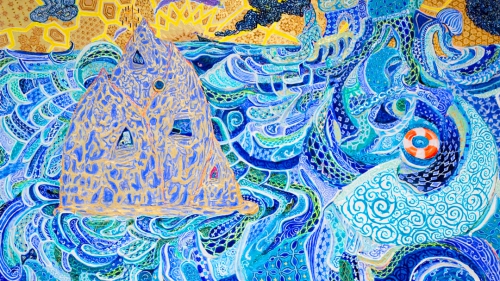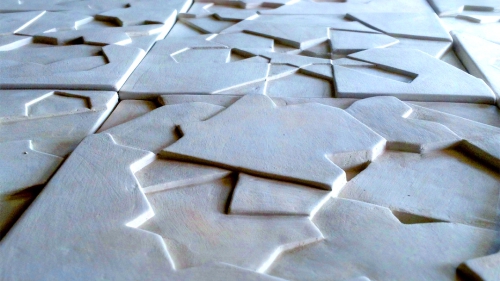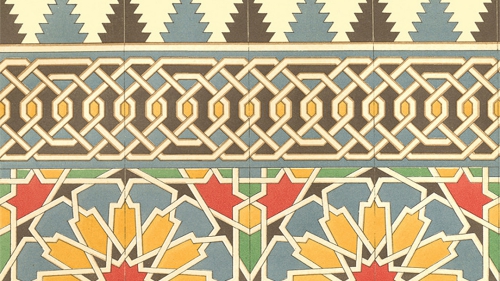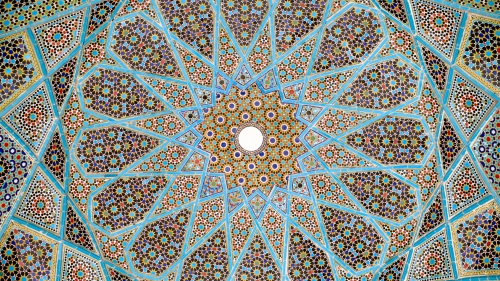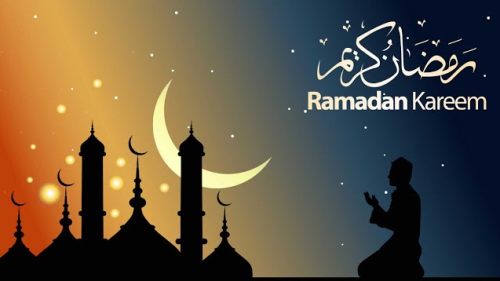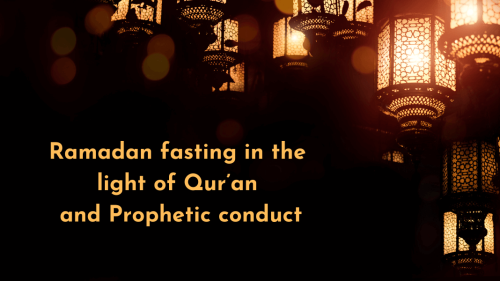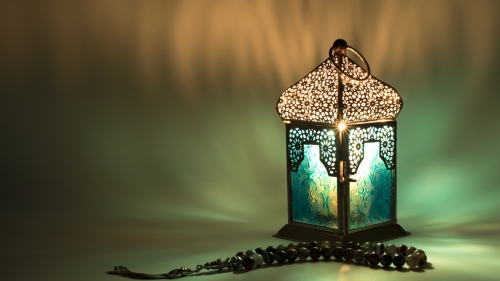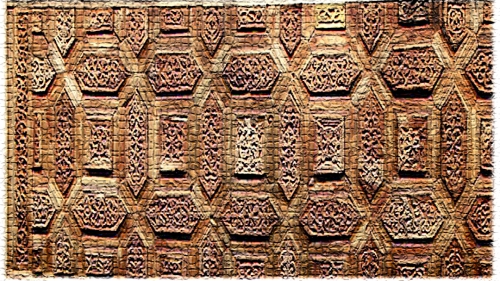Ramadan: 12 Reasons To Fast!
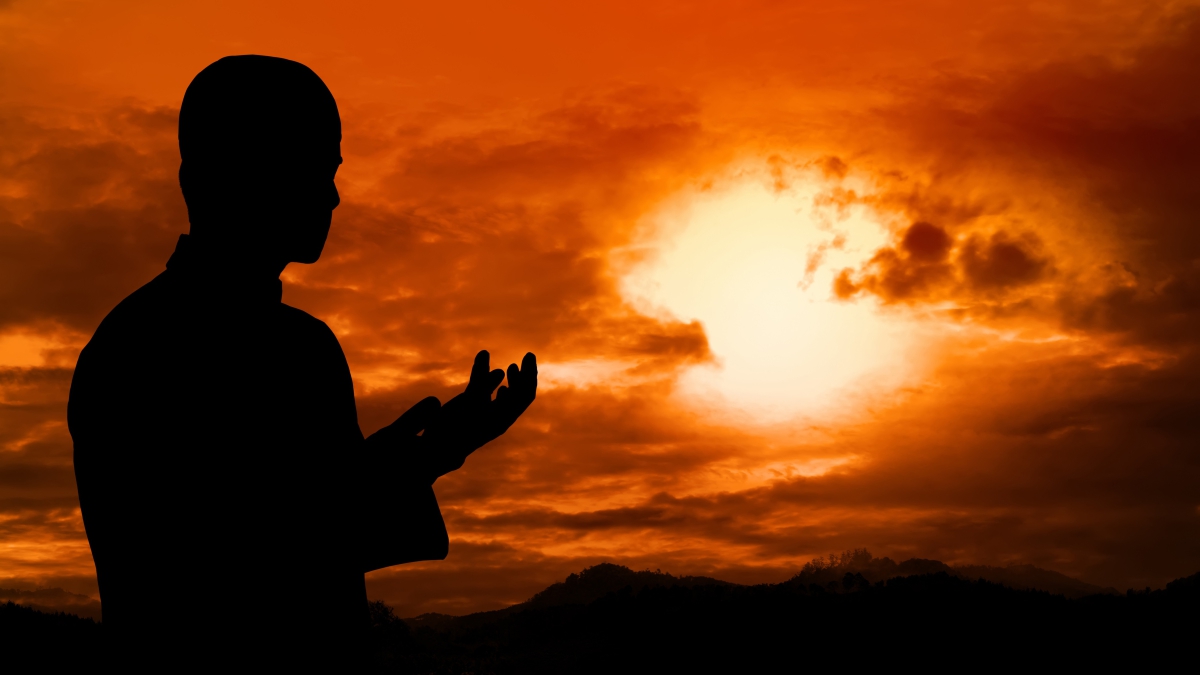
"Fasting in Ramadan develops in a person the real spirit of social belonging, of unity and brotherhood, and of equality before God. This spirit is the natural product of the fact that when people fast they feel that they are joining the whole Muslim society (which makes up more than one fifth of world's population) in observing the same duty, in the same manner, at the same time, for the same motives, and for the same end.
No sociologist or historian can say that there has been at any period of history anything comparable to this powerful institution of Islam: Fasting in the month of Ramadan. People have been crying throughout the ages for acceptable 'belonging', for unity, for brotherhood, for equality, but how echoless their voices have been, and how very little success they have met..." says Hammudah Abdalati, in Islam in Focus.
"What is fasting?" "How does the fasting of Muslims in Ramadan differ from the fasting of other faiths?" "Why should one 'torture' one's body in the first place?" "What do you really gain from fasting in the end?"...These are a few questions that a number of non-Muslim friends and colleagues often ask us, usually out of fascination with this spiritually-uplifting practice of Islamic faith, and at times out of pity and sympathy for us, thinking, why should anyone suffer from hunger and thirst like Muslims? I wouldn't be surprised if many of us shared the same negative perception of Fasting.
It is important to note that Fasting in Arabic is called, "Sawm", which literally means 'to be at rest'. Fasting in the month of Ramadan (the 9th month of the Islamic lunar calendar) is one of the Five Pillars upon which the "house" of Islam is built. During this month, every able-bodied Muslim, is required to fast, everyday from dawn until dusk
Develop Character
Fasting is an institution for the improvement of moral and spiritual character of human being. The purpose of the fast is to help develop self-restraint, self-purification, God-consciousness, compassion, the spirit of caring and sharing, the love of humanity and the love of God. Fasting is a universal custom and is advocated by all the religions of the world, with more restrictions in some than in others. The Islamic Fast, as opposed to mere starvation or self-denial, is an act of worship and obedience to God, thanksgiving, forgiveness, spiritual training, and self-examination.
Self Reflection
Ramadan gives us a break and provides us with a rare opportunity to think about our own selves, our future, and our families. It is a time to give our selves a mental break and to temporarily forget about the hundreds of worries and stresses we are constantly bombarded with. In hectic times, such as ours, and in places like the West, this valuable time to think about our lives, on individual basis, is a luxury and is desperately needed! It is a unique month of self-analysis, and of taking stock of one's moral and spiritual 'assets and liabilities'.
Develop Compassion
Fasting inculcates in us patience, unselfishness, and gratitude. When we fast we feel the pains of deprivation and hunger, and learn how to endure it patiently. The meaning of this powerful experience in a social and humanitarian context is that we are much quicker than anybody else in sympathizing with the oppressed and needy around the world, and responding to their needs. "It is the month to visit the poor, the sick, and the needy to share their sorrows. It is the month where the food, sustenance and the earnings of a believing Muslim increases and they are blessed," says the Final Prophet of God, Muhammad (peace be upon him), a man who was known for his noble humanitarian causes, for social justice, and for being the first to respond to other's needs, despite the fact that he himself lived a very simple and humble life. It is only during such a trying time as Ramadan that we can reflect on the condition of those in this world who may not be as fortunate as us.
Develop Adaptability
Fasting in Ramadan enables us to master the art of mature adaptability and Time-Management. We can easily understand this point when we realize that fasting makes people change the entire course of their daily life. When they make the change, they naturally adapt themselves to a new system and schedule, and move along to satisfy the rules. This, in the long run, develops in them a wise sense of adaptability and self-created power to overcome the unpredictable hardships of life! A person who values constructive adaptability, time-management, and courage will appreciate the effects of Fasting in this respect as well.
Cultivates Love
It cultivates in us the principle of sincere Love, because when we observe Fasting, we do it out of deep love for God. And a person, who loves God, truly is a person who knows what love is and why everyone on this Earth should be loved and treated justly, for the sake of God.
Elevates the Spirit
Fasting elevates the human spirit and increases our awareness of God. It strengthens our will-power as we learn to rise above our lower desires. The institution of fasting is both unique and a shared experience in human history. From the very beginning of time, humans have struggled to master their physical and psychological selves: their bodies and their emotions. Hunger is one the most powerful urges that we experience. Many, through over- or under-eating or consumption of unhealthy foods, abuse this urge. Thus, when a person purposefully denies something to their own self that it craves, they are elevating their mind above their body, and their reason and will above their carnal passions. "A fasting person empties his stomach of all the material things: to fill his soul with peace and blessings, to fill his heart with love and sympathy, to fill his spirit with piety and Faith, to fill his mind with wisdom and resolution," says H. Abdalati in Islam in Focus. The person who can rule their desires and make them work, as they like, has attained true moral excellence.
Develops Clarity of Mind
With the clarity of mind and absence of distractions, also comes a greater focus. As students, the period of fasting, especially early during the day, serves as a tool to focus our minds on our academics. In the month of Ramadan, many Muslims try to avoid watching TV, listening to music, and some other leisure activities, which spares them more time and energy to be spent on more productive activities such as academics, intense study of Islam, voluntary prayers, social and humanitarian causes, and a quality time with the family, to name a few. It is a reminder of our duty to God, our purpose and higher values in life, as God Himself describes the purpose of fasting as follows, "O you who Believe! Fasting has been prescribed for you as it was prescribed for those before you, so that you may develop consciousness of God" (Quran 2:183).
Develops a Healthy Lifestyle
Fasting has numerous, scientifically proven, benefits for our physical health and mental well-being. The time, length and nature of the Islamic Fast all contribute to its overall positive effect. One of the medical benefits is a much-needed rest to the digestive system. The reduced food intake during the day allows the body to concentrate on getting rid of harmful dietary toxins accumulated as natural by-products of food digestion throughout the year. The length of the Islamic Fast itself (around 12-14 hours) is in sync with the 'transit time' of food from the mouth to the colon of the large intestine, ensuring that no stimulus reaches the stomach or digestive system while it remains in homeostasis. Therefore, for the vast majority of healthy individuals fasting poses no medical risks but in fact provides many health benefits, such as: an increase in serum Magnesium, essential for cardio-vascular health and prevention of heart complications; improvement in the quality and depth of sleep; improvement in memory and slower skin aging over time; increased production of growth hormone, etc. Also, as a general note, it has been observed that underfed animals live longer than their heavily fed counterparts and suffer fewer illnesses during their lives.
Moral Training
The month of Ramadan provides us with a sort of "Boot camp." It is a month of intense moral training. Since we know that Fasting is a special duty prescribed by God, we learn that any sins may spoil our record of fasting with God, so we go through great lengths making sure we are on our best behavior. Many people who experience fasting in this month, feel the impact that this intense training has on their habits, and realize the power of this transformative tool designed to make us better human beings- the ultimate goal of any spiritual exercise. The entire Ramadan atmosphere provides the driving force for this positive change.
Consciousness of Life & Death
It makes us realize the reality of life and death. Fasting makes us realize how dependent our lives are on things that we often take for granted, such as food and water. It makes us think about our dependence on God and God's mercy and justice. Moreover, it reminds us of the life after death, which itself has a great impact on our character and our world-view.
Connection to the Quran
Ramadan is a blessed month for a special reason: It is actually the month in which God first revealed His final message and guidance for mankind to our beloved Prophet Muhammad. This message has been perfectly preserved both orally and textually in the form of a Book, called the Qur'an (The Reading/Recital). Therefore, Muslims try to do an intense study of the Quran in this month especially, and evaluate their lives according to the standards and guidance contained in it.
A Time to Celebrate
After the month of Ramadan is over, Muslims celebrate one of the two most important holidays in the Islamic year: EID-UL-FITR, or the Festival of the Fast Breaking. It is a day to thank God for the blessing and training that He provides us with throughout the month of Ramadan. EID-UL-FITR is marked by praying in a huge congregation at an Islamic center or mosque, and by giving a small donation to the poor in the community. The adults give the donation on behalf of their children as well. Dinner parties, family outings, fairs, carnivals, and great joyous celebrations follow the prayer and charity.
In a nutshell, even though the real purpose of the dynamic institution of Fasting is to discipline our soul and moral behavior, and to develop sympathy for the less fortunate, it is a multi-functional and a comprehensive tool of change in various spheres of our lives, including: social and economic, intellectual and humanitarian, spiritual and physical, private and public, personal and common, inner and outer ---all in one!
Topics: Equality, Fasting (Sawm), Health, Life And Death, Moral Teachings Of Islam, Ramadan, Taqwa (God Consciousness) Values: Compassion, Contentment, Love, Manners, Spirituality Channel: Ramadan - Day 2
Views: 125279
Related Suggestions
it's just a diet. They think they've done their duty if they miss a few meals, yet still
treat others badly and don't change themselves for the better. There's no praying or
kindness, just skipping 2 meals and rewarding themselves with a feast afterwards.
Such a shame, that many fasts won't be accepted.
thank ALLAH and PROPHET MUHAMMAD SAW for giving us a chance to prove ourself in the
month of Ramzan... if I have been blessed by almighty god to rebirth I will definately nd only
want to become muslim... Islam Zindabad
As a physician, I can say my patients with diabetes do better. They reduce their medications. So to the writer Chris (who's probably speaking out of ignorance), there you have it. Anyone with any medical illness should discuss with their doctors, what they can and can't do during Ramadan. It's not about hardship. Allah swt is great. He gives us life and death, and all in between. He is merciful to us. He provided us food and health. The greatful will find a way to fast or please Allah swt. Their reward will be handed out on the day of judgement, as the gate of heaven (by the name of Raiyan) will welcome those who fasted. Ramadan Kareem!
Alhamdollilah.Thank you for this very uplifting and informative topic.May Allah continue to guide muslims and those that seek truth.Islam is Truth.
Thanks for posting this article so people like myself and others can learn more of the benefits of fasting.
Alhamdullillah! I meet again another Ramadan. Bcos only in Ramadan, I feel that my heart stays in calm & I wish to remain perserverance. Only during Ramadan, people become generous and sensitive over others who in needs.
Thanks Allah for chose me to be follower of Prophet Muhammad (pbuh).
May Allah bless myself, family, friends and my country. I wish my country remain harmony and people respect each other.
Allah innika affu'un karim, tuhibu afwa fafuanna.
Islam, may Allah reward you abundantly. Rmadan Kereem.
The writer of this article has really done a great job by simply enlightened people what FASTING is all about.
I pray that Almighty Allah grant you more Knowledge and wisdom that would be of use to yourself and the whole world of ISLAM.
As-Salam Aleikum.
sombady give me the small translation of the Qur'aan for gif ,I lake but my question is in fasting time I can drink water.
Please help me on this question.
Thank you.
Assalamou haleykoume.
We are grateful to Al Mighty Allah, that we still have time, so do yours duties as ordained to pleased the Allah the Al Mighty, while we have still time. It is never too late to do kind act as directed. He is most Merciful. Let us follow the the preaching of Holy Prophet Muhammad PBUH, not only in the Holy month of Ramadhan but through-out the year, while we still got the Time.
May Allah the Al Mighty Bless us all and always. Ameen.
all of u bro n sister
ramadan month of control of your angryness ane(goosa)roza gunna ki dhal
sheri karna takat hai
lekin har chis namaz ke bad hai
lai latul qadar ki rat hazar mahino se afzal hai
ramzan ke mhina me apne ap ko dadal na jarori hai
aur is mahine me apne nafs ko kabo karna jarori hai
allah muslaman ke roze ko kabol kare
AMEEN
Keep on awakening and stirring our inner faith by such great articles
Come, come and calm down my Brothers and Sisters, don't go too hard on Brother Imran.
While we all agree on this article for our love for ALLAH, but I'm certain that Brother Imran disagrees also for the love of ALLAH. This is just a matter of " khilafiah " or " furuqiah " and let not the minor disagreement among us stray us away from our beliefs in ALLAH.
I just want to add an input, I believe that Muslims should also plan their budget spending wisely during the month of Ramadhan. Actually we should be spending less on our household needs, thus whatever extra income that we have, please donate it to our mosques, or orphanage or we can even store it for future family plans like education for our children, that too is an ibadah.
I also want to share tips on how to keep ourselves healthy during the Ramdhan. Firstly in breaking our fast, eat moderately and let not the over consumption of food refrain us from our mandatory prayers and the " tarawih " as well.
Secondly always execise moderation, there is no need to over emphasis the good deeds that we do in Ramadhan to others. ALLAH is the All Knower, HE is ever OmniPresence and Omnipotence, HE Knows and surely HE is rich in HIS Rahmah and Baraqah.
Thirdly, in our early morning meals before the dawn prayer, please ensure that we consume enough water especially those in places experiencing hot climate. The loss of too much fluid during the day can be enduring but enough intake of liquid water before dawn can compensate those.
And finally please ensure that after the night prayers, we get adequate rest. One of the worst thing is the feeling of being fatigue during the day or even headache out of insufficient rest.
That's all for now. May ALLAH love us, always and grant us HIS Rahmah and Baraqah.
Wassalam,
Kris MacPherson and family.
I disagree. First, although I am not versed in Al-Quran as to the exact Surah(s) or Ayat(s), I do believe and feel that Allah (s.w.t.) Orders Muslims to invite non-Muslims to our Way of Life. I do not know if we should stand on public podiums and speak to whomever would listen, but on an individual basis, i.e.: what I have done is when approached by a person of the Mormon or Jehovah's Witness, is exchange five or so pamphlets from WhyIslam.org for whatever they have. I keep these pamphlets with me constantly, not hard to do. At least, they have something to read that they possibly have never read before.
I do agree with your point about 8, 12, or 20 Rakahs of Taraweeh Prayer, but is that not an individual choice? I've done all three, and won't know how I will feel about how many I would want to do until I get to that point.
I, too, have witnessed the gluttonous stuffing of stomachs that Muslims do at Iftar, ignoring Prophet Muhammed's (PBUH) one-third rule. That does sadden me. After three or four days I'm down to small portions; forget about desert.
I was also caught up in the crescent moonsighting controversy; and have actually taken stands on BOTH sides. Now, I look for the beautiful sight of the crescent myself, and if skies are cloudy, I make a few phone calls. It's as simple as that.
Brother Imran, you and I both know we don't have to justify our Way of Life to anyone, but the One that matters. The only opinion you and I should be concerned about is Allah's! Don't you agree? It's nice to explain in joyous words and terms what we're about and what we're doing. I'm sure you've held captive before not just a few fellow human beings who are at least curious about what you and we are doing. You get MUCH reward for that, my Brother!
From your article; ....It is a day to thank God for the blessing and training that He provides us with throughout the month of Ramadan.
Can you explaind, If I have any mistake its good to know too!
Thankew for another Ramadan article at ths time
of sawm. Being a newcomer to Islam I am grateful
to Allah for allowing me to be a Muslim and to be able to fast at this time of year.
Reminders are what a lot of us need in order to
solidify our faith just in case we stray away
from the real reason of the fast.
This will be my 7th Ramadan, and I still consider
myself a newcomer because I am continously
learning on a daily basis with my experiences
and reading. I have always felt a great sense of
achievement after breaking my fast with the taste of dates and water. May your dates be substantial
and your water pure.
May Allah bless all of my brothers and sisters
at this time and always.
Peace and Blessings
Sarah and I and all our three children would like to wish all our Muslims Brothers and Sisters a " Happy Ramadhan al Mubaraq ".
We pray to ALLAH that whatever commendable deeds that every Muslim does in the month of Ramadhan would be richly rewarded by HIM, Insya ALLAH. This is also a month of forgiveness and repentance, and a time of Rahmah. And let us race among one another for obtaining HIS Rahmah, Insya Allah.
I'll continue to visit this wonderful website and will definitely penned down my thoughts in sharing with all the ummah.
Wassalam.
OH ALLAH PLEASE EXCEPT OUR SAWM AND OUR SALAAT!!
ALLOW US TO BE INCONNECTION TO YOU!!!!! THE ONLY TRUE UNITY IS THAT OF YOU OH ALLAH!!!!
Period!
We need no explanations, no justifications, no here's what is good about it.
It has been ordained as Mandatory with very clear exceptions, so do it!
We need less of these types of articles.

















